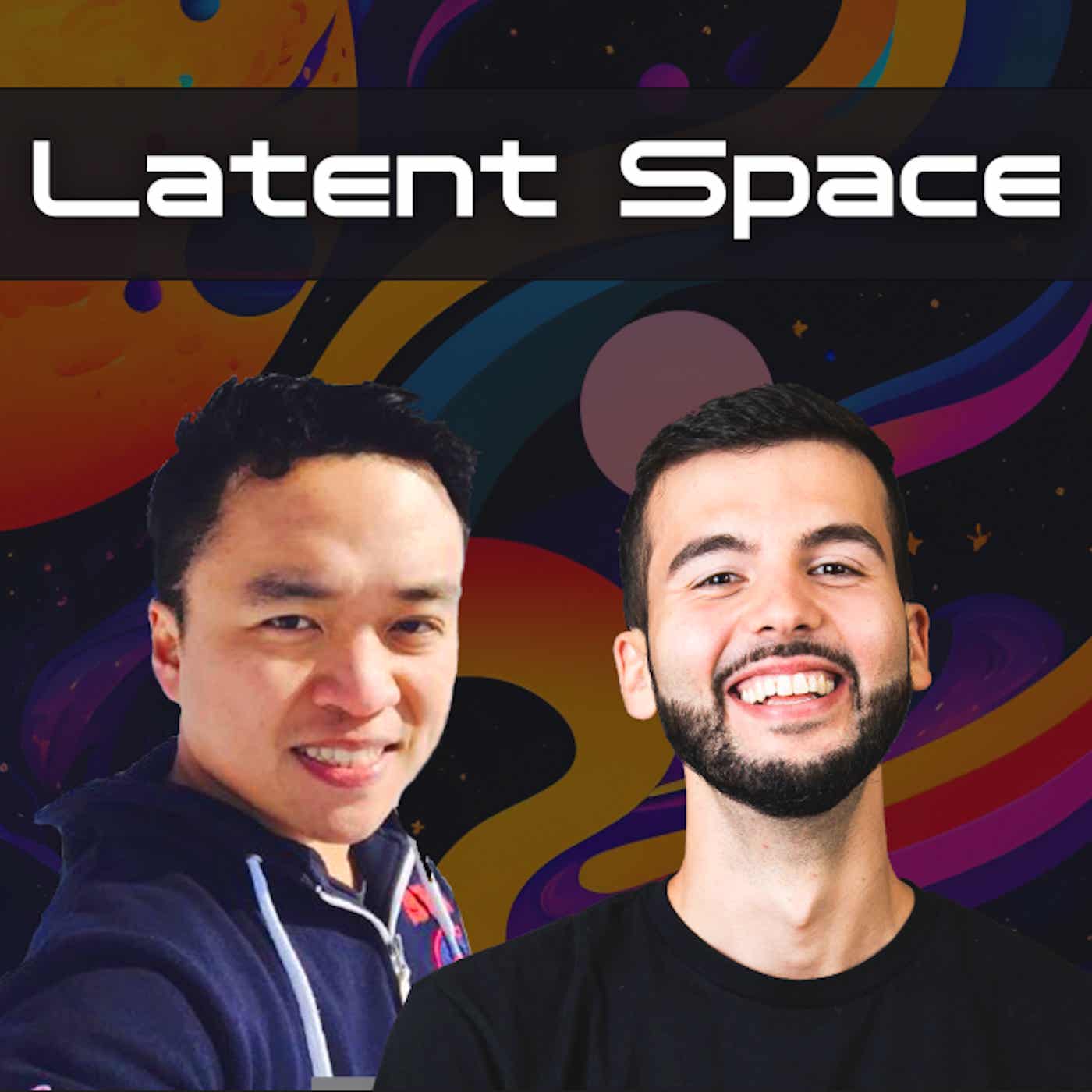Agents @ Work: Dust.tt
Description
We are recording our next big recap episode and taking questions!
Submit questions and messages on Speakpipe here for a chance to appear on the show!
Also subscribe to our calendar for our Singapore, NeurIPS, and all upcoming meetups!
In our first ever episode with Logan Kilpatrick we called out the two hottest LLM frameworks at the time: LangChain and Dust. We’ve had Harrison from LangChain on twice (as a guest and as a co-host), and we’ve now finally come full circle as Stanislas from Dust joined us in the studio.
After stints at Oracle and Stripe, Stan had joined OpenAI to work on mathematical reasoning capabilities. He describes his time at OpenAI as "the PhD I always wanted to do" while acknowledging the challenges of research work: "You're digging into a field all day long for weeks and weeks, and you find something, you get super excited for 12 seconds. And at the 13 seconds, you're like, 'oh, yeah, that was obvious.' And you go back to digging."
This experience, combined with early access to GPT-4's capabilities, shaped his decision to start Dust: "If we believe in AGI and if we believe the timelines might not be too long, it's actually the last train leaving the station to start a company. After that, it's going to be computers all the way down."
The History of Dust
Dust's journey can be broken down into three phases:
* Developer Framework (2022): Initially positioned as a competitor to LangChain, Dust started as a developer tooling platform. While both were open source, their approaches differed – LangChain focused on broad community adoption and integration as a pure developer experience, while Dust emphasized UI-driven development and better observability that wasn’t just `print` statements.
* Browser Extension (Early 2023): The company pivoted to building XP1, a browser extension that could interact with web content. This experiment helped validate user interaction patterns with AI, even while using less capable models than GPT-4.
* Enterprise Platform (Current): Today, Dust has evolved into an infrastructure platform for deploying AI agents within companies, with impressive metrics like 88% daily active users in some deployments.
The Case for Being Horizontal
The big discussion for early stage companies today is whether or not to be horizontal or vertical. Since models are so good at general tasks, a lot of companies are building vertical products that take care of a workflow end-to-end in order to offer more value and becoming more of “Services as Software”. Dust on the other hand is a platform for the users to build their own experiences, which has had a few advantages:
* Maximum Penetration: Dust reports 60-70% weekly active users across entire companies, demonstrating the potential reach of horizontal solutions rather than selling into a single team.
* Emergent Use Cases: By allowing non-technical users to create agents, Dust enables use cases to emerge organically from actual business needs rather than prescribed solutions.
* Infrastructure Value: The platform approach creates lasting value through maintained integrations and connections, similar to how Stripe's value lies in maintaining payment infrastructure. Rather than relying on third-party integration providers, Dust maintains its own connections to ensure proper handling of different data types and structures.
The Vertical Challenge
However, this approach comes with trade-offs:
* Harder Go-to-Market: As Stan talked about: "We spike at penetration... but it makes our go-to-market much harder. Vertical solutions have a go-to-market that is much easier because they're like, 'oh, I'm going to solve the lawyer stuff.'"
* Complex Infrastructure: Building a horizontal platform requires maintaining numerous integrations and handling diverse data types appropriately – from structured Salesforce data to unstructured Notion pages. As you scale integrations, the cost of maintaining them also scales.
* Product Surface Complexity: Creating an in
More Episodes
Alessio will be at AWS re:Invent next week and hosting a casual coffee meetup on Wednesday, RSVP here! And subscribe to our calendar for our Singapore, NeurIPS, and all upcoming meetups!
We are still taking questions for our next big recap episode! Submit questions and messages on Speakpipe here...
Published 11/15/24
Published 11/15/24
Apologies for lower audio quality; we lost recordings and had to use backup tracks.
Our guests today are Anastasios Angelopoulos and Wei-Lin Chiang, leads of Chatbot Arena, fka LMSYS, the crowdsourced AI evaluation platform developed by the LMSys student club at Berkeley, which became the de...
Published 11/01/24


